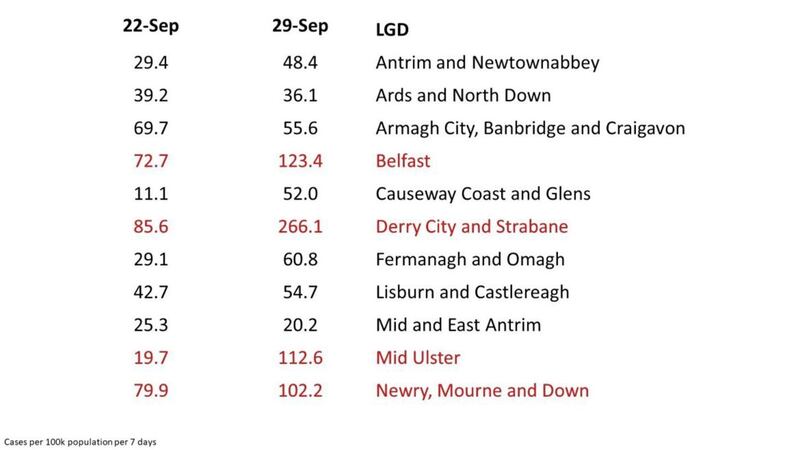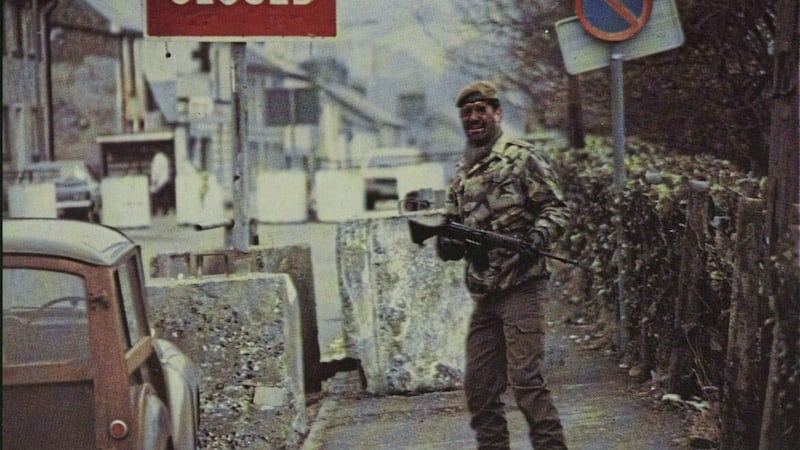Health minister Robin Swann has warned that "further difficult decisions are necessary" in the fight against coronavirus.
Giving evidence to the Assembly's health committee this morning, he referred to an "alarming increase" in the number of positive Covid-19 cases across Northern Ireland, with an additional 424 cases confirmed yesterday, the highest daily total since the current testing regime started.
"We are facing a very serious situation," he said, repeating his assessment that Northern Ireland stands at a crossroads.
"If the current trends do not change, if attitudes to this virus do not toughen, in six weeks' time our hospital inpatient numbers will exceed those witnessed during the first wave - and that isn't even the worst-case scenario."
Mr Swann said since restrictions were introduced in the Ballymena and BT43 area - which were later extended across the north as a whole - cases have dropped by around 50% while the Belfast rate has also slowed.
He said there is currently sustained transmission of Covid-19 in the community in the Derry and Strabane council area.
"We are now in a place where further difficult decisions are necessary," he said. "I will be coming to the Executive later today with a set of proposals."
Sinn Féin MLA Pat Sheehan put to the health minister that there is a Covid service, but not a health service unless you have an immediate life-threatening condition.
"When can we expect normal service to be resumed?" he asked.
Mr Swann responded, saying it is not possible to give a date until Covid-19 has gone away.
But he said they are trying to open up as many services as possible.
Chief medical officer Dr Michael McBride warned that the health service is not likely to be "business as usual for many, many months... until such times as we have better control on the virus".
He also gave a stark description of the experience of a seriously ill Covid-19 patient, saying it is "difficult for people to imagine what it's like to be fighting for your breath".
"You've got a mask tightly fitted over your face which many people find quite claustrophobic," he said.
"It's a bit like facing into a wind tunnel, you've got this air coming at high pressure forcing air into your airways, it's a very unpleasant experience.
"What you know as a patient sitting there is it's the difference between you keeping well and staying well, and perhaps ending up needing to be transferred into intensive care.
"Then comes the conversation that has to be had with those individuals, that once they are ventilated they might never wake up again, it may not ever be possible to take them off the ventilator.
"It's a very, very scary experience, and when individuals are paralysed and ventilated, they don't know whether they are going to wake up again, and their relatives don't know if they are going to wake up again, and sadly for too many, they don't."
SDLP MLA Colin McGrath joined the meeting by video call after going into self-isolation following a notification via the Stop Covid NI app that he had been in contact with a positive case of Covid-19.
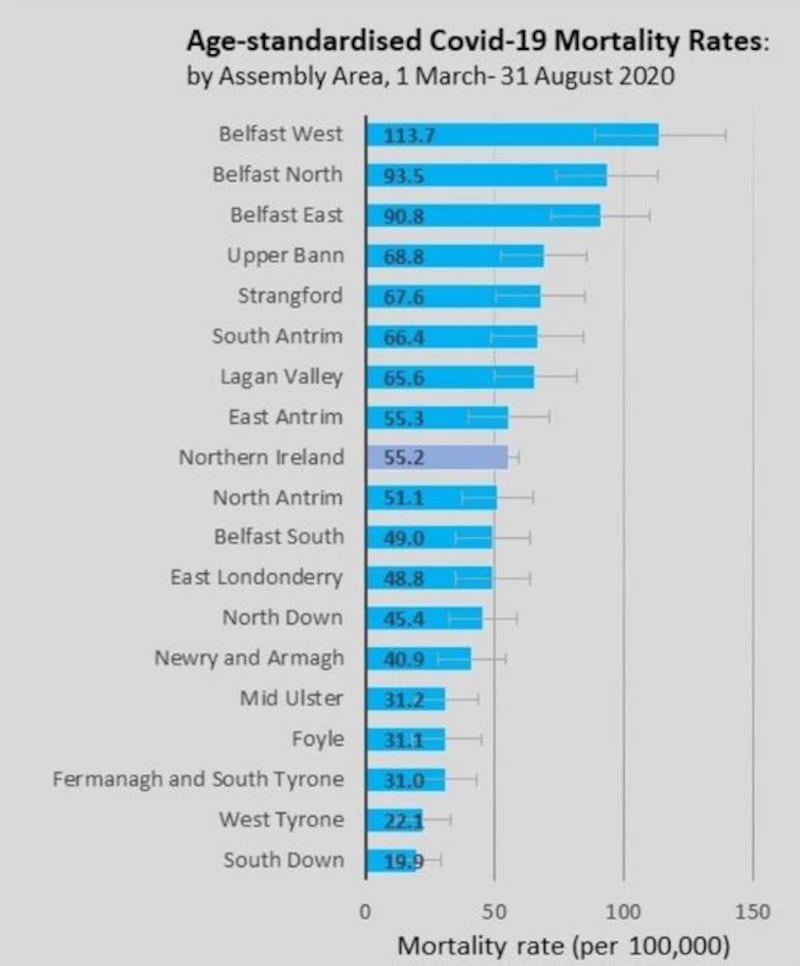
Meanwhile, new figures from the Northern Ireland Statistics and Research Agency (NISRA) show that Covid-19 related deaths have accounted for 10.9% of all deaths in Northern Ireland over six months.
Nisra published the data this morning relating to the 875 Covid-19 related deaths in the last six months.
The figures show males had a "significantly higher "rate of death linked to Covid-19 - 69.9 deaths per 100,000 of the male population compared with 45.8 deaths per 100,000 females.
Covid-19 rates were also found to be highest in the 20% most deprived areas, at 66 deaths per 100,000 population compared with 55.2 per 100,000 persons for Northern Ireland as a whole.
Belfast Local Government District (LGD) had 90 deaths per 100,000, followed by neighbouring Antrim and Newtownabbey at 73.1.
Fermanagh and Omagh had the lowest (17.2), followed by the neighbouring Derry and Strabane (27).
For Assembly areas, Belfast West (113.7), Belfast North (93.5) and Belfast East (90.8) had the highest Covid-19 related deaths per 100,000 while South Down had the lowest (19.9).
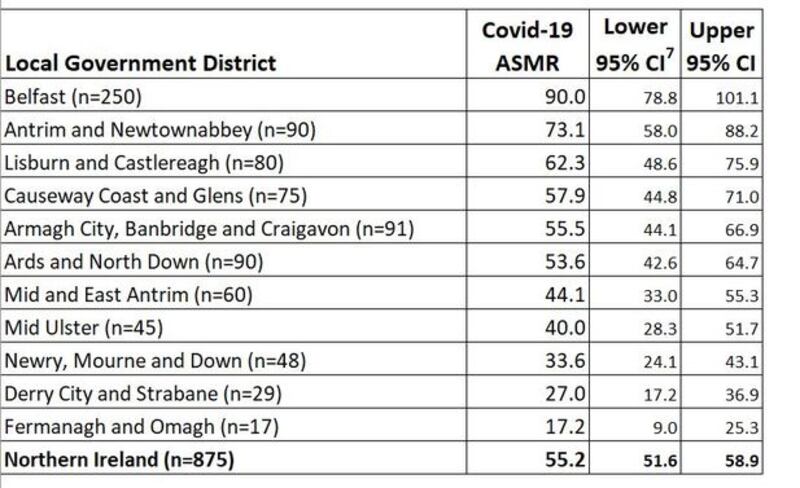
Meanwhile, 102 of the 875 (11.7%) Covid-19 related deaths were persons of working age (aged 20-69), of which the largest group (40 persons; 39.2%) were in the skilled trades, elementary occupations or process, plant and machine operative occupational groups.
Speaking yesterday afternoon Mr Swann had said it is "inconceivable" that Stormont ministers would not announce further restrictions today to curb the spread of coronavirus.
The health minister insisted he did not want an all-out lockdown but warned that the north was at a "crossroads" as infection rates soar and hospital admissions also rise.
With a record high of 424 new Covid cases confirmed yesterday - 139 of which were in the Derry and Strabane area - the minister said he was now more concerned than at any point in the pandemic.
He said it was "inevitable" that tightened measures would be introduced into the north west, which has one of the highest infection rates in the UK with more than 300 cases per 100,000 people.
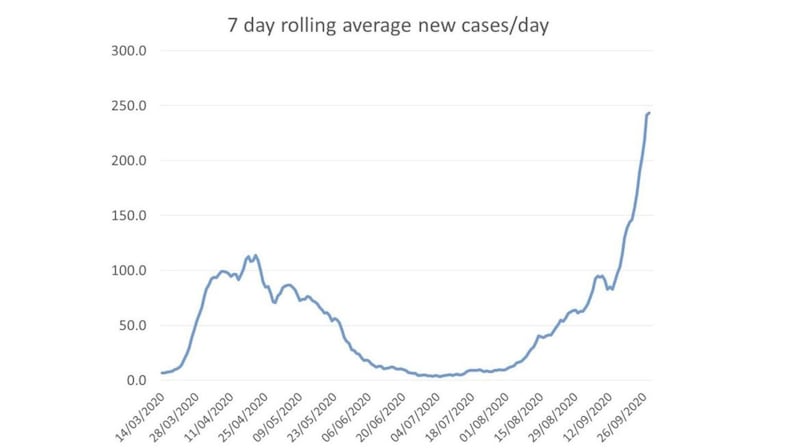
He indicated that while a so-called circuit breaker - which he described as a "lockdown in all but name" - would not be introduced today, such a step was possible over the Halloween mid-term break or potentially even earlier.
"We are now looking at a severe crisis full in the face," he said.
"I can't put this in any more stark terms - a crisis for our health and social care service and for many victims of Covid-19."
Mr Swann added: "I am now more concerned about what lies ahead in the next few months than I have been since becoming health minister."
Further restrictions may apply to the hospitality sector, on family and community interactions and on individual travel.
The Ulster Unionist minister also said places where the wearing of face coverings is mandatory may be expanded.
"I believe we are now at that moment where further action is necessary to combat the spread of coronavirus," he said.
"Those conversations will happen in the Executive tomorrow and we will have to decide what new restrictions to apply and should they be to the whole of Northern Ireland or on a more localised basis in areas where cases are particularly high."
Meanwhile, the north's Chief Scientific Officer, Professor Ian Young, said the rapid rise in cases was linked to "increased community transmission of the virus".
He said while testing has increased significantly, it had "remained steady for the past two weeks" and more people were getting positive results - with as many as one in 12 over recent days.
"The increase in cases is not due to increased testing," he said.
"The percentage of tests that we do and which are positive is also increasing dramatically, having been around one in 200 at the beginning of July, now around one in 20 tests on average is positive."
